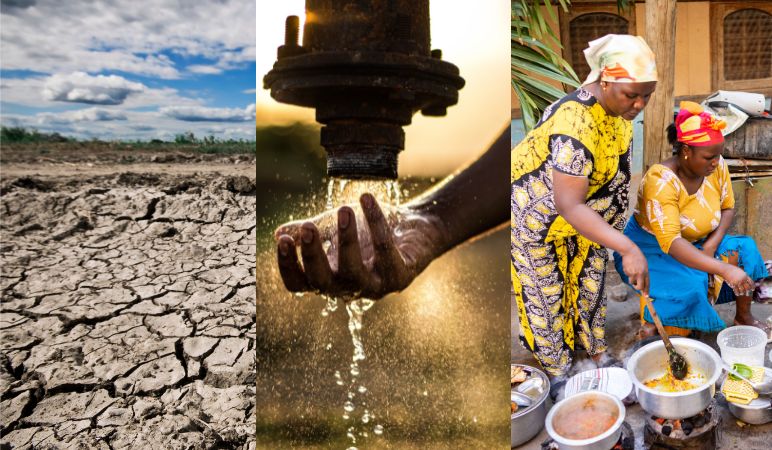Events Webinar series on how climate change is impacting land, water, and food
Attend three, virtual seminars this fall to learn how the effects of climate change are impacting water and food security.
Co-hosted by the J-WAFS-led Food and Climate Systems Transformation (FACT) Alliance and the University of Natural Resources and Life Sciences, Vienna (BOKU), a FACT Alliance member
October 31, November 21, and December 12 Online

Dialogue 1: Climate change and food system shocks: Building resilience for the near-term
Thursday, October 31, 2024 – 10:00 – 11:00 a.m. ET, 3:00 – 4:00 p.m. CET
This dialogue focuses on the need to build resilience in food systems as they face increasing shocks from climate change. As extreme weather events, shifting climate patterns, and environmental degradation disrupt agricultural production and food distribution, the stability of food systems worldwide is under threat. This session will bring together experts to discuss strategies for enhancing preparedness in the near term, exploring how communities, governments, and international organizations can collaborate to anticipate and mitigate these shocks. The dialogue will explore practical approaches for strengthening food security and ensure that vulnerable populations are protected. The discussion aims to equip participants with the insights needed to safeguard food systems and make related interventions more conflict sensitive.
Speakers:
- Molly Jahn, PhD, is a professor at the University of Wisconsin-Madison where she leads the Jahn Research Group and holds appointments in the Department of Agronomy, the Nelson Institute, and the Global Health Institute. Her research group mobilizes data, information and knowledge relevant to the dynamics of humanity’s food, water and energy provisioning, with an interest in human dimensions, local and planetary limits, and thresholds. Click here to learn more.
- Violet Kisakye, PhD, is an associate professor in the faculty of Agriculture and Environmental Sciences at Mountains of the Moon University, Uganda. She has extensive experience in implementation of research projects in the field of sustainable agriculture in a changing climate. Kisakye graduated in 2018 with a PhD in sustainable water resources management from the Catholic University of Leuven in Belgium (KU Leuven). Click here to learn more.
- Peter Läderach, PhD, is a principal scientist at the Alliance of Bioversity International and CIAT. He is the co-lead of CGIAR Focus Climate Security, based in Pretoria, South Africa and set up the Climate, Peace and Security and Displacement research agenda in Central America, Africa, and Asia, with extensive work experience in over 15 countries. Läderach holds an MSc in geography and a PhD in tropical agriculture. Click here to learn more.
Dialogue 2: Land and fragility amid a changing climate
Thursday, November 21, 2024 – 9:00 – 10:00 a.m. ET, 3:00 – 4:00 p.m. CET
Land degradation and the increased frequency of extreme weather events are putting immense pressure on ecosystems, livelihoods, the social fabrics. In many regions, these environmental stressors compound with political instabilities and economic fragilities. This session will bring together experts to examine how climate-induced fragilities impact social and environmental resilience. And we will explore with them strategies to mitigate these impacts, including nature-based solutions, circularity, and resilience-building.
Dialogue 3: Climate change and water: Are we doing enough?
Thursday, December 12, 2024 – 9:00 – 10:00 a.m. ET, 3:00 – 4:00 p.m. CET
This dialogue will explore the complex relationships between climate change, water resources and potential implications for human security. As climate change alters precipitation patterns, increases the frequency of droughts, and intensifies the severity of storms, water scarcity and quality issues are becoming more pronounced. This session will bring together experts to discuss how these changes in water availability and distribution can lead to heightened tensions, competition over resources, and even conflict. Participants will examine the role of effective water management, transboundary cooperation, and innovative policy solutions in mitigating these risks. The dialogue will also consider the broader environmental security implications of water-related challenges.